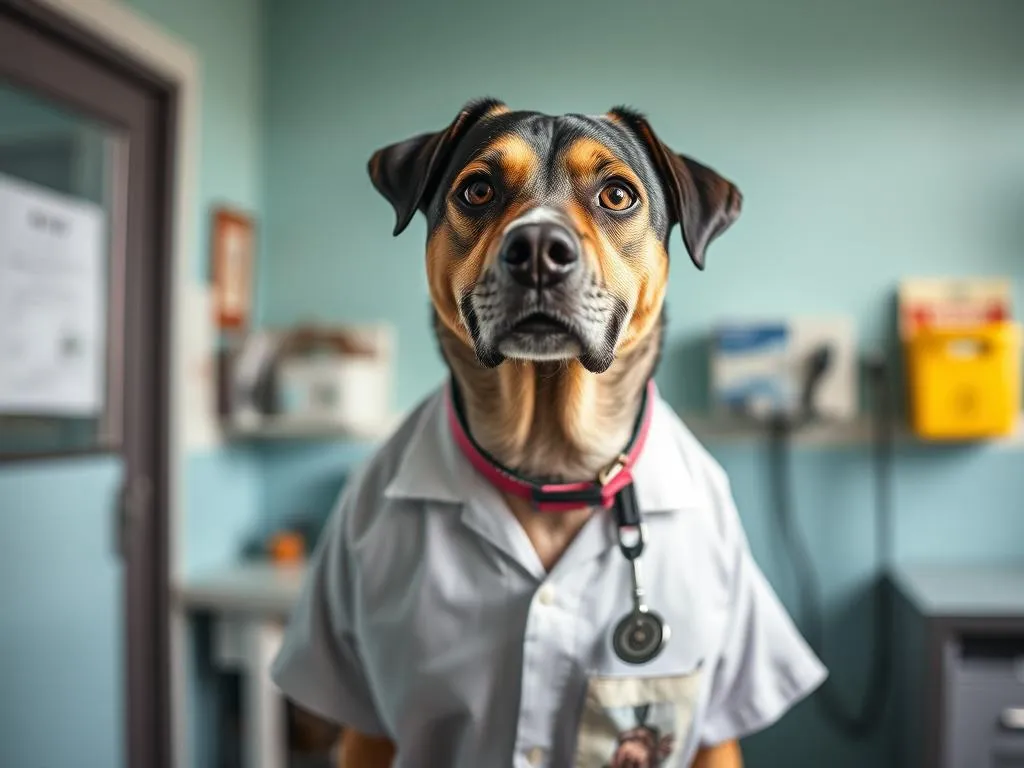
Finding out that the vet clinic is booked for the day can be a frustrating experience for any pet owner. Whether your furry friend is feeling unwell or you’re in need of routine care, knowing how to navigate this situation can ease your stress and help you ensure the best care for your pet.
Assessing the Urgency of the Situation
Before taking any action, it’s essential to assess how urgent the situation is. Not all pet ailments require immediate attention, but understanding the signs can help you make informed decisions.
Identifying Symptoms
Start by observing your pet’s behavior. Common symptoms that may indicate a need for veterinary care include:
- Vomiting or Diarrhea: Occasional vomiting or diarrhea can be normal, but if it persists or is accompanied by lethargy, it may require attention.
- Lethargy: If your pet is unusually tired or unresponsive, it may be a sign of an underlying issue.
- Difficulty Breathing: Labored breathing or coughing can be serious and should be addressed immediately.
- Severe Pain: Signs of pain can include whining, hiding, or aggression when touched.
- Changes in Appetite or Thirst: Sudden changes can indicate health problems.
When to Seek Immediate Help
Certain scenarios warrant immediate veterinary attention. If your pet experiences any of the following, do not hesitate to seek help:
- Severe Injuries: Any injury that results in bleeding, broken bones, or deep wounds requires urgent care.
- Sudden Illness: If your pet displays signs of an acute illness, such as seizures or sudden paralysis, contact a vet immediately.
- Poisoning: If you suspect your pet has ingested something toxic, time is of the essence. Call an emergency clinic right away.
- Choking: If your pet is choking and unable to breathe, seek immediate help.
Knowing your pet’s baseline health can also aid in assessing changes. If you’re familiar with your pet’s normal behavior and habits, you’ll be better equipped to notice when something is wrong.
Alternative Veterinary Options
When the vet clinic is booked for the day, there are alternative veterinary options that can help you get the assistance you need.
Emergency Veterinary Clinics
Emergency veterinary clinics are specifically equipped to handle urgent cases. They often have extended hours and are prepared for a variety of emergencies. Here’s how to locate one:
- Research in Advance: Familiarize yourself with nearby emergency clinics before a crisis strikes. Check reviews and services offered.
- Call Ahead: If possible, call the clinic to inform them of your situation. They can guide you on what steps to take next and how long the wait might be.
Expect longer wait times at emergency clinics due to the nature of cases they handle. Be prepared to provide detailed information about your pet’s condition.
Telemedicine for Pets
Telemedicine for pets is becoming increasingly popular and can be a great option when the vet clinic is booked for the day. Many veterinarians now offer virtual consultations, which can be a convenient alternative for non-emergency situations.
- Benefits: You can receive professional advice without leaving your home. This is especially useful for minor ailments or follow-up appointments.
- Limitations: Telemedicine cannot replace hands-on examinations. If your vet recommends an in-person visit, be prepared to seek further assistance.
Mobile Vet Services
Mobile veterinary clinics provide an excellent alternative, especially for regular check-ups or minor illnesses. These services bring the vet to your home, which can reduce stress for your pet.
- Convenience: No need to travel; many pets find it less stressful to be examined in a familiar environment.
- Availability: Mobile vets may have flexible scheduling, making it easier to get an appointment.
Before using a mobile service, research and ensure they are fully licensed and equipped to handle your pet’s specific needs.
Home Care Solutions
In some cases, you may be able to provide care for your pet at home until you can reach a vet.
Basic First Aid for Pets
Understanding basic first aid can empower you in situations where the vet clinic is booked for the day. Here are essential skills every pet owner should know:
- Control Bleeding: Apply pressure with a clean cloth to stop bleeding.
- Rescue Breathing: If your pet is unconscious and not breathing, perform rescue breathing by sealing your mouth over their nose and giving gentle breaths.
- Choking Relief: If your pet is choking, try to perform the Heimlich maneuver. For small pets, hold them upside down and give a firm thrust under the rib cage.
Common first aid supplies to have on hand include:
- Gauze and bandages
- Antiseptic wipes
- Tweezers (for splinters or ticks)
- A digital thermometer
- A pet-friendly ice pack
Comforting a Sick Pet
If your pet is unwell but stable, here are tips for making them comfortable at home:
- Create a Quiet Space: Choose a calm, quiet area for your pet to rest. Provide soft bedding and minimize noise.
- Hydration: Encourage your pet to drink water. If they’re reluctant, try offering ice chips or broth.
- Monitor Symptoms: Keep an eye on their symptoms and behavior. If they worsen, seek professional care as soon as possible.
Recognizing when home care is sufficient vs. when to seek professional help is crucial. If you notice any alarming changes, do not hesitate to reach out to a vet, even if it’s just for guidance.
Planning for Future Vet Visits
Proper planning can help avoid situations where the vet clinic is booked for the day in the future.
Scheduling Appointments
To prevent scheduling conflicts, consider these tips:
- Book in Advance: Schedule routine check-ups in advance, especially during busy seasons (like spring when many pets require vaccinations).
- Choose Off-Peak Times: Early mornings or late afternoons might be less busy, increasing your chances of securing an appointment.
Maintaining a Health Record
Keeping a detailed health record for your pet is essential for effective veterinary care. Important information to include:
- Vaccination History: Keep track of all vaccinations and their due dates.
- Medical History: Record previous illnesses, surgeries, and treatments.
- Medications: List any medications your pet is currently taking and their dosages.
Organizing this information in a binder or using digital apps can make it easy to access during vet visits.
Building a Relationship with Your Vet
Establishing a rapport with your veterinarian can lead to better care for your pet. Here are ways to strengthen that relationship:
- Regular Communication: Don’t hesitate to ask questions during appointments. Share any concerns or changes in your pet’s behavior.
- Follow-ups: After treatments or procedures, keep the vet updated on your pet’s recovery.
A trusted veterinarian can become a valuable resource for advice and guidance throughout your pet’s life.
Community Resources and Support
Being part of a community can provide additional support when the vet clinic is booked for the day.
Pet Care Hotlines
Consider calling a pet care hotline for immediate advice. Many veterinary organizations have hotlines staffed by professionals who can provide guidance on common pet issues.
- Emergency Advice: These hotlines can help you decide whether to seek immediate care or manage the situation at home.
- Cost-Effective: Often, these services are free or low-cost, making them accessible for pet owners.
Local Pet Care Groups and Forums
Connecting with other pet owners can be beneficial. Local pet care groups and online forums provide a platform for sharing experiences and advice.
- Seek Advice: Ask for recommendations for vets or emergency clinics from fellow pet owners.
- Share Experiences: Engaging in discussions can help you learn from others’ experiences and gain insights into pet health.
Social media platforms and specialized pet care websites can serve as excellent resources for connecting with other pet owners.
Conclusion
Navigating the situation when the vet clinic is booked for the day doesn’t have to be overwhelming. By assessing the urgency of your pet’s condition, exploring alternative veterinary options, and being prepared for home care, you can take proactive steps to ensure your pet receives the care they need.
Being organized for future vet visits and engaging with community resources can further enhance your ability to care for your pet. Remember, being informed and prepared is key to being a responsible pet owner. Share your experiences and tips with fellow pet owners to foster a supportive community.









